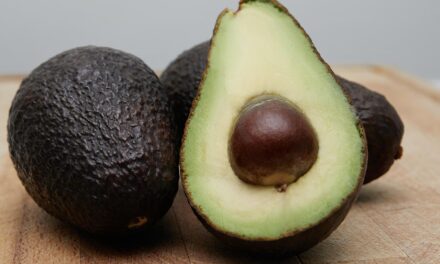What is the nutritional profile of avocados?
Avocados are a nutritional powerhouse, celebrated for their rich composition of vitamins, healthy fats, and fiber. Here’s a look at the nutritional profile of a typical avocado (one medium, around 150 grams):
Macronutrients in Avocados
- Healthy Fats
- Monounsaturated Fat: Avocados are high in monounsaturated fat, primarily in the form of oleic acid, which has been linked to heart health and reduced inflammation. One medium avocado contains around 15 grams of healthy fats, essential for nutrient absorption and brain health.
- Polyunsaturated Fat: Avocados also contain a small amount of polyunsaturated fats, which support cardiovascular and brain health.
- Fiber
- Avocados are fiber-rich, with about 10 grams of fiber in a medium avocado, including both soluble and insoluble fiber. This high fiber content aids digestion, promotes a healthy gut microbiome, and helps regulate blood sugar levels.
- Protein
- Avocados contain around 3 grams of protein, a unique feature for a fruit. Though not a complete protein source, the protein in avocados adds to overall protein intake and supports muscle health.
- Carbohydrates
- A medium avocado contains about 12 grams of carbohydrates, most of which come from fiber, giving it a low net carb content and making it suitable for low-carb and ketogenic diets.
Vitamins in Avocados
- Vitamin K
- Avocados are an excellent source of vitamin K, providing approximately 35% of the daily recommended intake. Vitamin K is essential for bone health and blood clotting.
- Vitamin C
- With around 15% of the daily value per serving, vitamin C in avocados supports immune function, skin health, and collagen synthesis.
- Vitamin E
- Avocados are rich in vitamin E, a powerful antioxidant that protects cells from oxidative damage and supports skin health. This vitamin also plays a role in immune function and may help reduce inflammation.
- B Vitamins
- Avocados are a good source of various B vitamins, including:
- Vitamin B5 (Pantothenic Acid): Supports energy production and hormone synthesis.
- Vitamin B6: Vital for brain health and hormone balance, B6 also plays a role in mood regulation.
- Folate (Vitamin B9): Important for DNA synthesis, cell growth, and fetal development during pregnancy. Avocados contain about 20% of the daily recommended intake of folate.
- Avocados are a good source of various B vitamins, including:
- Potassium
- Avocados are potassium-rich, containing more potassium per gram than bananas. A medium avocado provides about 15% of the daily recommended intake, supporting healthy blood pressure, muscle function, and nerve transmission.
Minerals in Avocados
- Magnesium: Essential for muscle and nerve function, bone health, and energy production.
- Copper: Vital for iron metabolism and maintaining strong connective tissues.
- Iron: Though avocados contain small amounts of iron, this mineral is crucial for oxygen transport in the body.
Phytonutrients in Avocados
- Lutein and Zeaxanthin: These antioxidants, found in avocados, support eye health by protecting against age-related macular degeneration and blue light damage.
- Beta-Sitosterol: This plant sterol is linked to cholesterol management and heart health.
Avocados offer an impressive blend of healthy fats, fiber, and essential vitamins and minerals. Their unique nutritional profile makes them a beneficial food for heart, brain, and digestive health, as well as for skin and eye wellness. Whether used in salads, spreads, or smoothies, avocados add both richness and a nutritional boost to meals.
Find out more about Avocados as a superfood
How Chia Seeds Support Health
by fab_brands | January 15, 2025 | nutrition, superfoods | 0 Comments
Chia Seeds as a Superfood
by fab_brands | January 15, 2025 | nutrition, superfoods | 0 Comments
Frequently Asked Questions about Dates
by fab_brands | December 1, 2024 | superfoods | 0 Comments
How Dates Support Health
by fab_brands | December 1, 2024 | superfoods | 0 Comments
Nutritional Profile of Dates
by fab_brands | December 1, 2024 | superfoods | 0 Comments
Frequently Asked Questions about Kale
by fab_brands | November 25, 2024 | superfoods | 0 Comments
How Kale Supports Health
by fab_brands | November 25, 2024 | superfoods | 0 Comments
Nutritional Profile of Kale
by fab_brands | November 25, 2024 | superfoods | 0 Comments
Frequently Asked Questions about Eggs
by fab_brands | November 18, 2024 | superfoods | 0 Comments
How Eggs Support Health
by fab_brands | November 18, 2024 | superfoods | 0 Comments




